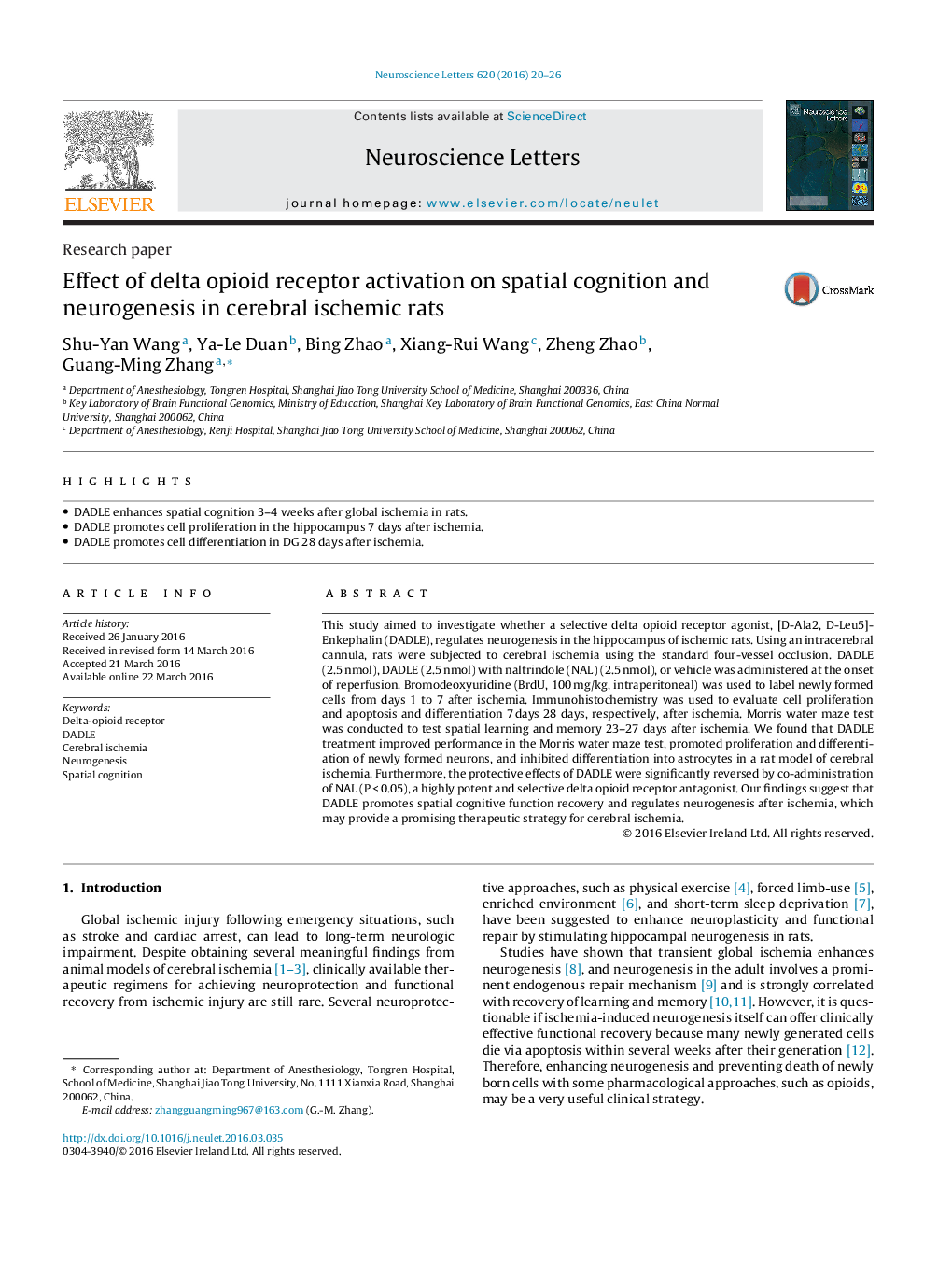| Article ID | Journal | Published Year | Pages | File Type |
|---|---|---|---|---|
| 6279567 | Neuroscience Letters | 2016 | 7 Pages |
â¢DADLE enhances spatial cognition 3-4 weeks after global ischemia in rats.â¢DADLE promotes cell proliferation in the hippocampus 7 days after ischemia.â¢DADLE promotes cell differentiation in DG 28 days after ischemia.
This study aimed to investigate whether a selective delta opioid receptor agonist, [D-Ala2, D-Leu5]-Enkephalin (DADLE), regulates neurogenesis in the hippocampus of ischemic rats. Using an intracerebral cannula, rats were subjected to cerebral ischemia using the standard four-vessel occlusion. DADLE (2.5Â nmol), DADLE (2.5Â nmol) with naltrindole (NAL) (2.5Â nmol), or vehicle was administered at the onset of reperfusion. Bromodeoxyuridine (BrdU, 100Â mg/kg, intraperitoneal) was used to label newly formed cells from days 1 to 7 after ischemia. Immunohistochemistry was used to evaluate cell proliferation and apoptosis and differentiation 7Â days 28 days, respectively, after ischemia. Morris water maze test was conducted to test spatial learning and memory 23-27 days after ischemia. We found that DADLE treatment improved performance in the Morris water maze test, promoted proliferation and differentiation of newly formed neurons, and inhibited differentiation into astrocytes in a rat model of cerebral ischemia. Furthermore, the protective effects of DADLE were significantly reversed by co-administration of NAL (PÂ <Â 0.05), a highly potent and selective delta opioid receptor antagonist. Our findings suggest that DADLE promotes spatial cognitive function recovery and regulates neurogenesis after ischemia, which may provide a promising therapeutic strategy for cerebral ischemia.
